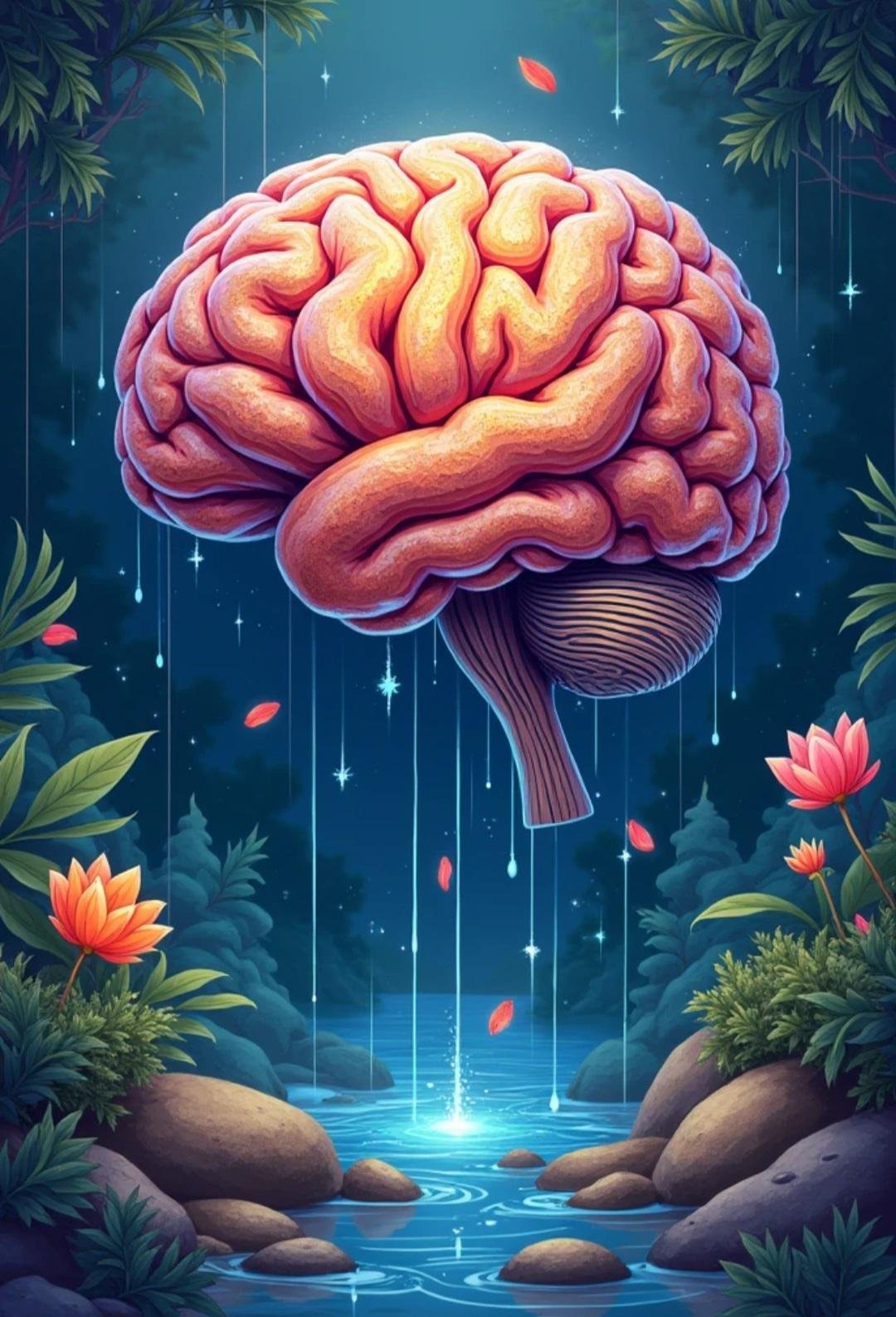Breaking the Silence: Debunking 5 Myths About Mental Health That Keep Us in the Shadows

In today’s fast-paced world, managing stress and maintaining mental well-being is more important than ever. Thankfully, technology has stepped in to offer us tools that can aid in this endeavor. Mental health apps have become increasingly popular, and many of them are tailored to meet the unique needs of users across the globe, including India.
This article explores some of the best mental health apps, offering insights into their features, benefits, and how they can help you stay calm and centred:
1. Headspace

Headspace is one of the most well-known mental health apps globally, and it has found a significant user base in India. This app focuses on mindfulness and meditation, offering guided sessions that are perfect for beginners and experienced practitioners alike.
▪︎ Features:
– Guided Meditations: Ranging from 10 minutes to an hour, designed to help with various issues like stress, anxiety, and sleep.
– Mindfulness Exercises: Techniques to integrate mindfulness into daily life.
– Sleep Sounds: To aid with falling asleep.
▪︎ How can it helps in staying calm:
Headspace offers a variety of content in English, and the app’s calm and soothing tone resonates well with users looking for relaxation amidst their busy lives. The guided sessions are perfect for anyone needing a quick mental break during their hectic schedules.
2. Calm

Another popular choice is Calm, which offers a comprehensive range of tools for relaxation and mental well-being. From sleep stories to breathing exercises, Calm provides a holistic approach to managing stress.
▪︎ Features:
– Sleep Stories: Narrated by celebrities and designed to help you fall asleep faster.
– Meditation Sessions: Covering topics like stress relief, gratitude, and focus.
– Breathing Exercises: To help calm your mind and body.
▪︎ How can it helps in staying calm
Calm’s diverse offerings cater to various needs, from improving sleep to enhancing focus, making it a versatile tool for anyone looking to maintain their mental well-being. Its approach is well-suited for individuals dealing with the pressures of modern life in India.
3. Happify

Happify focuses on building happiness through science-based activities and games. It uses techniques from positive psychology and cognitive behavioral therapy to help users improve their mood and overall well-being.
▪︎ Features:
– Interactive Activities: Games and exercises designed to boost positivity.
– Progress Tracking: Insights into your emotional growth and areas for improvement.
– Evidence-Based Techniques: Approaches grounded in psychological research.
▪︎ How it can helps in staying calm:
In a culture where mental health discussions are increasingly gaining traction, Happify provides a fun and engaging way to enhance emotional well-being. Its scientific basis helps demystify mental health improvement, making it accessible and relatable.
4. MyWellbeing

MyWellbeing is designed to connect users with mental health professionals and resources. This app is ideal for those seeking more personalized support and professional advice.
▪︎ Features:
– Therapist Matching:.Connects users with mental health professionals based on their needs.
– Resource Library: Articles, videos, and tools for self-help.
– Online Therapy: Access to virtual therapy sessions.
▪︎ How it can helps in staying calm:
With the growing emphasis on mental health in India, My Wellbeing offers a bridge to professional help. It’s particularly useful for individuals who might feel overwhelmed and need a structured approach to their mental health.
5. Wysa

Wysa is an AI-driven mental health app that offers support through conversations with an AI chatbot, which uses techniques from cognitive behavioral therapy and other therapeutic methods to help users manage their emotions.
▪︎ Features:
– AI Chatbot: Provides instant, anonymous support and coping strategies.
– Mood Tracking: Helps monitor emotional patterns and triggers.
– Therapeutic Exercises: Activities based on CBT and mindfulness.
▪︎ How it can helps in staying calm:
Wysa’s AI-driven approach makes mental health support accessible at any time. Its anonymity is particularly appealing in a culture where discussing mental health issues openly can still be challenging. The app also offers content in multiple languages, including regional Indian languages.
6. Youper

Youper is designed to help users manage their mental health through mood tracking and therapeutic conversations with an AI chatbot. It combines elements of cognitive behavioral therapy with innovative technology.
▪︎ Features:
– Mood Tracking: Daily check-ins to monitor your emotional state.
– Therapeutic Chat: Conversations aimed at improving mental health.
– Goal Setting: Helps users set and achieve personal mental health goals.
▪︎ How it can helps in staying calm:
Youper’s focus on tracking mood and setting goals provides a structured approach to mental well-being. Its use of AI to facilitate therapeutic conversations can be particularly helpful for those who prefer a more private, flexible way to manage their mental health.
7. iPrevail

iPrevail offers peer-to-peer support and coaching, making it a unique app in the mental health space. It focuses on providing a community-based approach to mental health improvement.
▪︎ Features:
– Peer Support: Connect with others facing similar challenges.
– Coaching Programs: Personalized coaching and support.
– Mental Health Tools: Various exercises and resources to support mental well-being.
▪︎ How it can helps in staying calm:
iPrevail’s community-driven approach aligns well with the Indian cultural emphasis on community and family support. It provides a platform for individuals to share their experiences and find support from others in similar situations.
Dispelling the 5 Most Common Misconceptions About Mental Health
Mental health is a topic that often carries stigma and misconceptions, especially in conservative societies where traditional beliefs can overshadow scientific understanding.
Here, we debunk five common myths about mental health problems and provide clarity on these critical issues.
● Myth 1: Mental Health Issues Are a Sign of Personal Weakness.

Reality: Mental health problems are not a sign of personal weakness. They are medical conditions that can affect anyone, regardless of their strength or character. Just as physical illnesses like diabetes or hypertension are not due to weakness, mental health issues arise from a complex interplay of genetic, biological, environmental, and psychological factors. Recognizing this is crucial in fostering a supportive environment for those affected.
● Myth 2: Only People with Severe Symptoms Need Help.

Reality: Mental health issues come in various degrees of severity. While some may experience severe symptoms, others may face milder forms of distress that still impact their daily lives. Seeking help early, even for less severe symptoms, can prevent problems from escalating and improve overall well-being. Addressing mental health proactively is key to maintaining a healthy mind, just as it is with physical health.
● Myth 3: Mental Health Problems Are Rare in Asian Society.

Reality: Mental health problems are more common than often perceived. According to various studies, a significant portion of the Asian population experiences mental health issues at some point in their lives. Factors like stress, socio-economic challenges, and cultural expectations contribute to these issues. Raising awareness and understanding the prevalence of mental health problems can help in providing necessary support and resources.
● Myth 4: Therapy and Medication Are Only for ‘Serious’ Mental Illnesses.

Reality: Therapy and medication are beneficial for a wide range of mental health issues, not just severe conditions. Treatments like psychotherapy, counseling, and medication can help manage stress, anxiety, depression, and other mental health concerns. Seeking professional help is a positive step towards better mental health and is not limited to severe cases.
● Myth 5: Discussing Mental Health Issues Publicly Will Bring Shame to the Family.

Reality: Openly discussing mental health issues can actually help reduce stigma and encourage others to seek help. In many Indian families, mental health discussions are often avoided due to fear of judgment. However, addressing mental health openly can foster understanding and support within families and communities. It can also pave the way for better access to resources and support systems.
Conclusion

Mental health apps offer a range of tools and resources to help manage stress, anxiety, and overall mental well-being. In India, where traditional and modern approaches to mental health are increasingly blending, these apps provide a valuable complement to conventional methods. Whether you’re looking for meditation guidance, professional support, or interactive tools, there’s an app out there tailored to your needs.
Breaking these myths and addressing mental health problems with the same seriousness as physical health is essential for improving mental well-being. Integrating these apps into your daily routine can be a simple yet effective way to cultivate calmness and improve your mental health. So why not give them a try? Along with Education, awareness, and open dialogue can help dismantle stigmas and create a more supportive environment for those affected by mental health issues.
Your mental well-being is worth every bit of effort.



